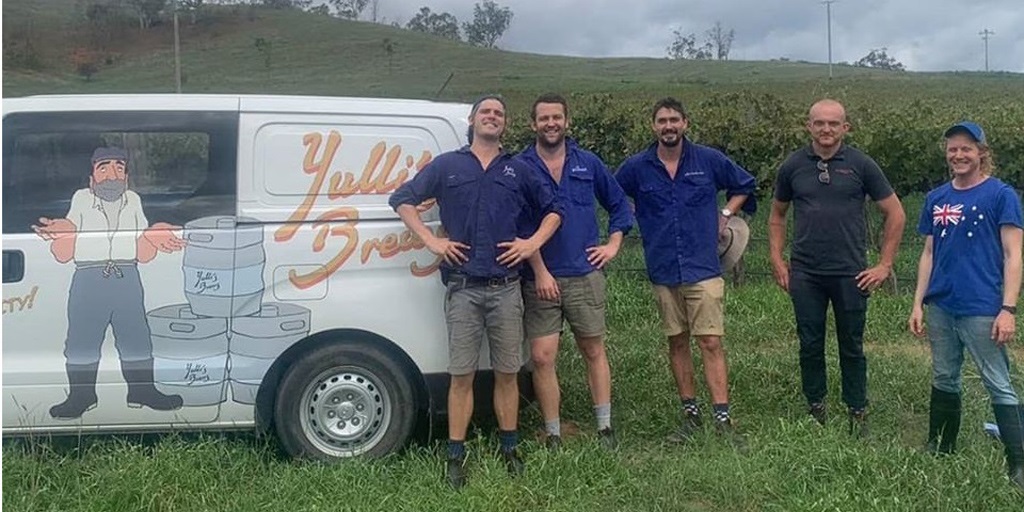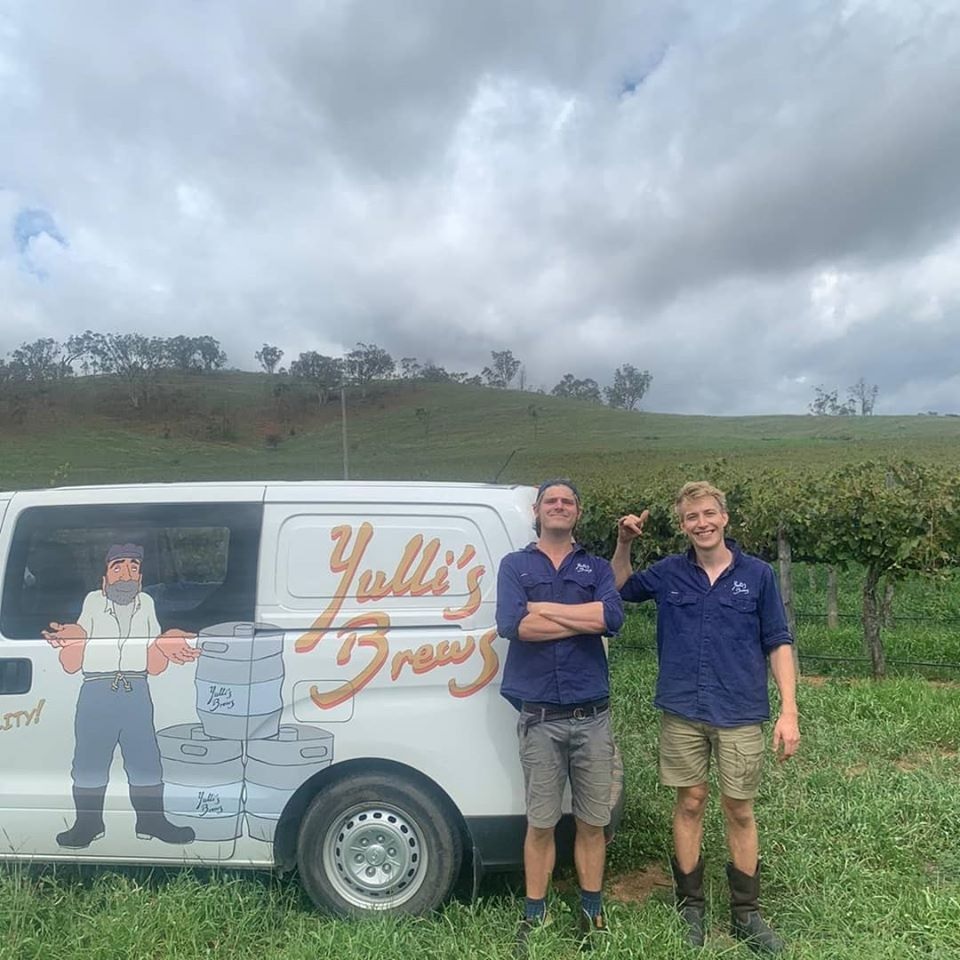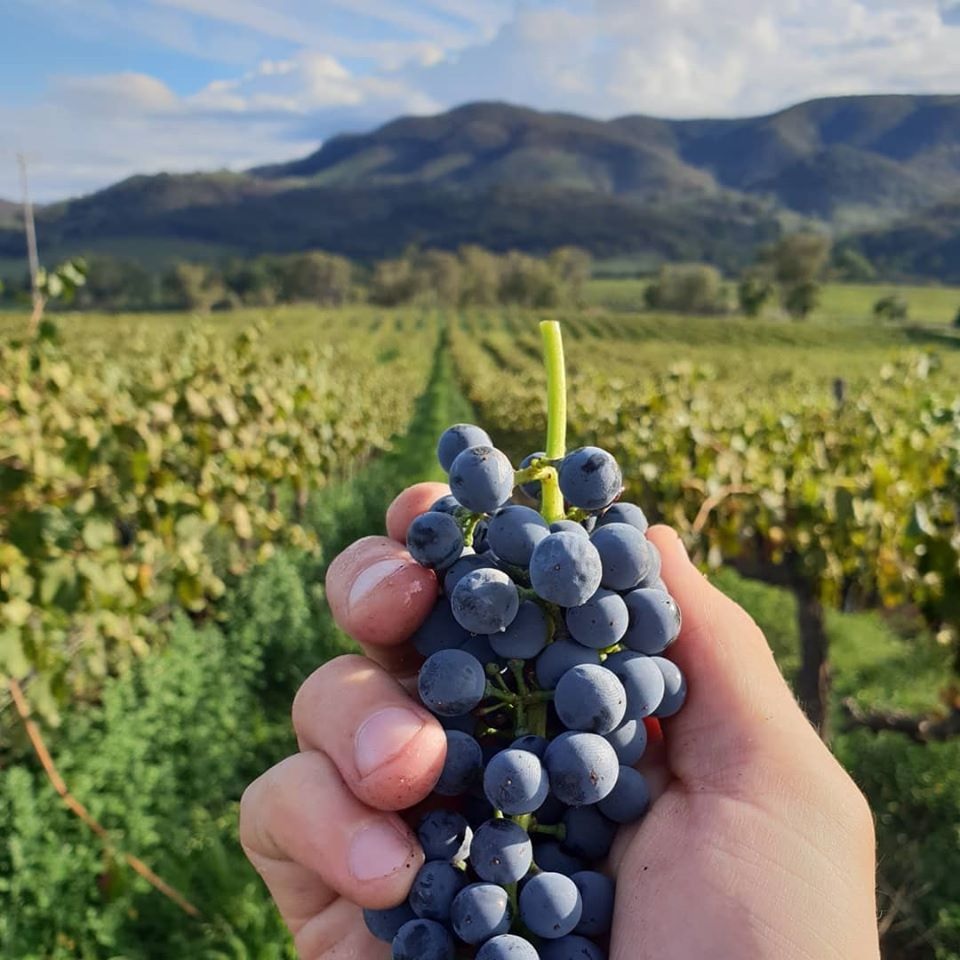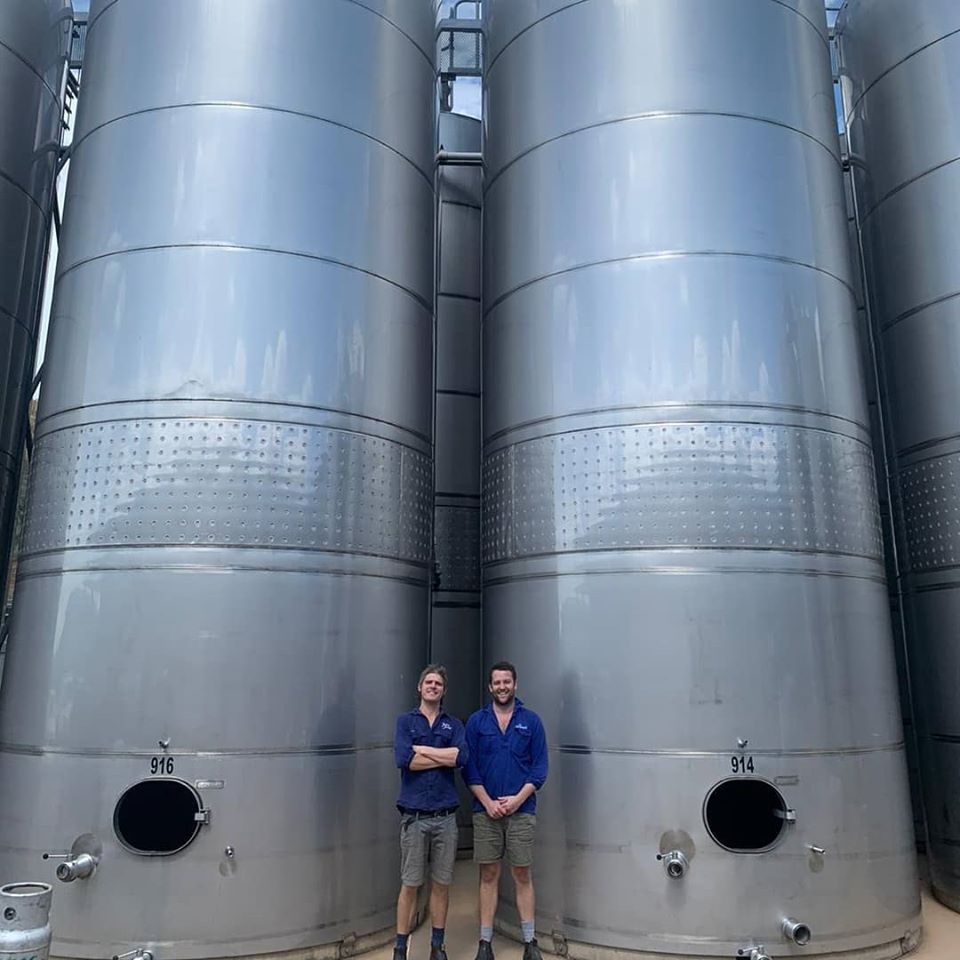
Yulli’s Brews with smoke-tainted grapes

Sydney brewery Yulli’s Brews is creating a beer-wine hybrid using smoke-tainted grapes from a NSW vineyard.
Yulli’s is teaming up with Gilbert Family Wines in Mudgee to make the hybrid beer using 700 kilogrammes of ‘unfit’ grapes, after the winery’s entire crop was decimated by the smoke from the bushfires.
Yulli’s brewer Tom Davies explained that it has been a challenging season for Gilbert and the Sydney brewers wanted to do something to help.
“We went up there last week on Wednesday and spent the whole day picking fruit, but the general feeling up there was pretty sad,” Davies said.
“You have to remember with wine, and I always forget it, they produce all of their wine at once in huge volumes.
“Even Gilbert, which is a small winery which produces many thousands of kilos of grapes and thousands of litres of wine a year… but this year they’ll have nothing from the 2020 vintage.”
Smoke taint
Although the last fires in NSW have been extinguished, the devastating effects of the bushfires continue to make themselves known.
For the wine industry, this means that vineyards across the region and beyond have had to dump whole crops because of smoke taint making them unusable in wine. Well-known winemaker Tyrell’s for instance had to ditch 80 per cent of its 1,200 tonne crop.
“Gilbert is doing a few experiments [with the grapes] but the results are coming back really poorly. We got to try some, it’s a really interesting flavour to try but it’s super prominent,” explained Davies.
“The strange thing is when you eat the grape there’s no smokiness at all. Apparently it’s linked to the sugars, so when it goes through fermentation that’s when the taste starts to appear. When you take the sweetness out it becomes more prominent.
“By the time you end up with a finished wine it tastes super smoky, burn, kind of ashy. That’s the only thing you can really taste.”
While Gilbert Family Wines’ vineyard wasn’t directly in the line of the bushfires and did not suffer any fire damage, the effects of the smoke 50 kilometres away still affected them.
“They said they had 70 days of smoke, that smoky haziness. It’s really impacted the fruit this year.
“The fruit itself is fine, if you’re a fruit grower for table grapes they don’t taste any of that flavour. It’s a very specific wine issue.”
The collaboration
The collaboration beer between Yulli’s and Gilbert has been a long time coming. Yulli’s co-founder James Harvey is a school friend of Will Gilbert, and the team had discussed a collaboration before.
“But if you think we’re using 700kg of grapes, and taking that from a winery means that’s 700kg less of grapes they can use for wines,” Davies explained.
“We’ve talked about it for a long time, and we did something along these lines for GABS, but that was a much smaller project, so this will be a good start.”
The beer will hopefully be a small silver lining for Gilbert.
“We’re not taking the grapes for free and we’re doing it as a collaboration, although it will be a drop in the ocean compared to the grapes they will have to [get rid of].”
The grapes Gilbert haven’t salvaged with the project will mainly be sold to farmers as animal feed where possible, but at least with the beer, Gilbert will have something from their 2020 vintage to sell.
“They will end up selling some in their tasting room in Mudgee, so they will have some product from their 2020 vintage – at least they’ll have something to show customers up there,” Davies said.
The beer
Davies explained that the inspiration from the beer came from another innovative NSW brewer, Topher Boehm of Wildflower Brewing & Blending in Marrickville who has made a number of mixed fermentation beers before.
“The idea mainly came from Topher, he’s a good mate of mine and he’s done this for a few years working with wineries making co-ferments, so he’s helped me out a lot, and given me advice for kicking off this project.”
Davies said they were learning from Wildflower’s experiences of using smoke-tainted grapes in beer, but it was still early days.
“We’ve just gone into stainless steel now, we pressed it off yesterday and got some really nice-looking beer so now it’s got to sit in oak barrels for a while.”
The process started with a picking.
“We were picking all the grapes by hand, it was a good day. We’ve taken the pick of the lot and were able to be quite fussy.
“Technically we did almost a foot stomp crush, it was really old school. We put some gum boots on and stomped around the grapes and put the beer on top of that.”
Next began the mixed fermentation process.
“We’ve left the beer be innoculated, so whatever yeast is on the grapes is fermenting the sugar in there.
“The really cool thing is that now we’ve taken the beer out of that tank and the grapes are all spent, it’s got the tannins of red wine. We’re using Shiraz grapes so it’s kind of already a beer with red wine tannins, it’s a really different element to what I’ve ever tasted before.”
That smoke flavour. a major fault in the wine world, is something that Yulli’s are using to their advantage.
“I’m hoping that we will get a little bit of smokiness, it’s not necessarily a negative fault. Because it’s also a beer, we will call it a beer not a wine. We’ve mixed 700kgs of grapes in with 1,800 litres of beer so it’s probably 70 per cent beer and 30 per cent wine.
“So diluting those grapes down, whatever the smoke tainted fault is it will be subdued a little bit.
“It’s already showing a little bit of smokiness and I think that will be a positive and plenty of people out there will want to taste it.”
Now the beer will sit in oak barrels for six months or more, explained Davies, and while on the surface it’s similar to any barrel ageing of beer, the process going on inside the barrel will provide the end complexity.
“When we do a barrel aged stout, it’s just sitting there on the oak, which takes a little while to come up.
“The only idea of putting it in the barrel is to get the character of the barrel, it’s more important what’s going on inside the barrel with a beer like the one we’re doing.
“If you’ve had something complex and aged, that’s partly from Brettanomyces which takes a long time to develop, months.
“It’s a really useful bacteria, because it can continue to consume the complex sugars and cleans up some of the faults you sometimes get in some of these beers, that’s why you’d spend a bit more time in oak than usual.”
After nail pulling to test the beer every six weeks, the beer will hopefully be ready before the end of the year. And it won’t be the only time Yulli’s gets involved with complex hybrids, Davies said.
“This one we’re gonna end up with about 2,000 litres and it’s definitely something we’ll do in some form again – but not the same beer, we’re really hoping there will not be any smoke damaged grapes next year to work with!”






